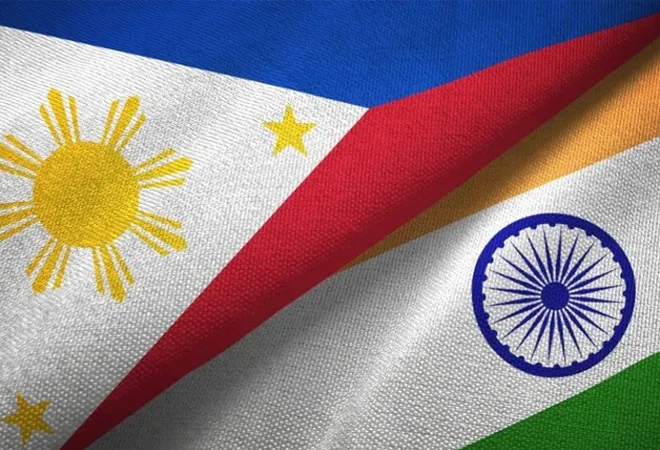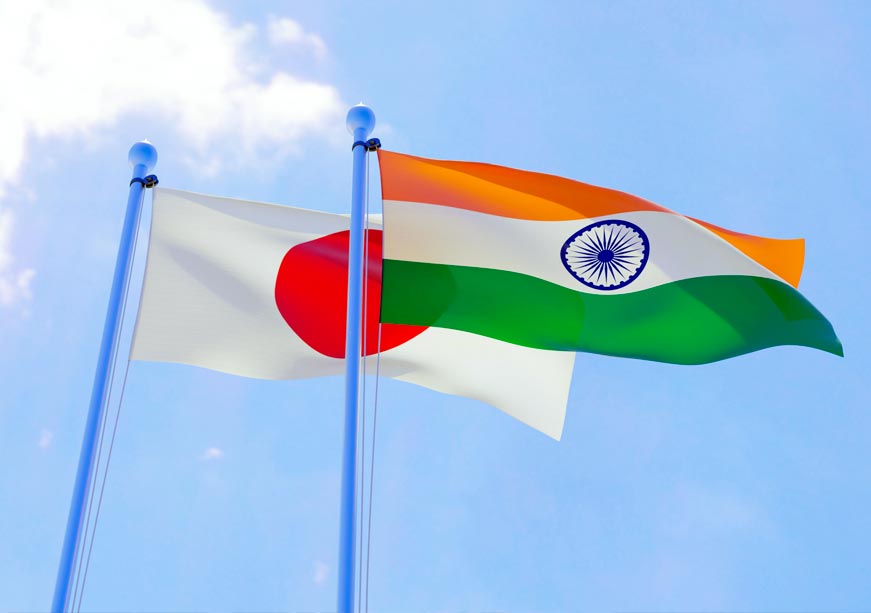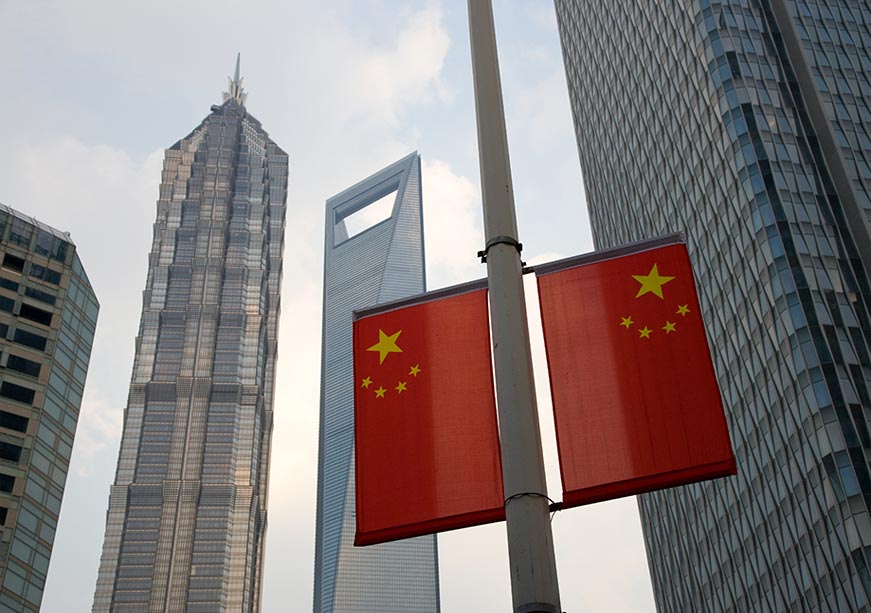
The partnership between India and the Philippines continues to grow and deepen, given both countries’ steadfast commitment towards the stability and security of a rules-based order in the Indo-Pacific. As today marks the seventh anniversary of the 2016 arbitral ruling in The Hague, which invalidated China’s expansive claim over the South China Sea, it is important to highlight India’s unequivocal support for the Philippines’s sovereignty and sovereign rights at a time of great geopolitical turbulence in the region.
New Delhi emphasised its support in contributing positively towards the Southeast Asian country’s efforts to enhance its maritime security capabilities.
During the three-day official visit at the end of June 2023 by the Secretary for Foreign Affairs of the Philippines (SFA), H.E. Enrique A. Manalo to India, the need for “expanding scope of India-Philippines ties to further strengthen the bilateral relationship” was stressed upon. Both officials engaged in fruitful discussions towards deepening and broadening the status of Philippine-India security ties. During this visit, New Delhi emphasised its support in contributing positively towards the Southeast Asian country’s efforts to enhance its maritime security capabilities. This was illustrated by reiterating New Delhi’s defence line of credit, while also exploring more possibilities for maritime cooperation.
Break with the past
In the joint statement released after the fifth meeting of the Joint Commission on Bilateral Cooperation (JCBC) on 29 June 2023 at Hyderabad House in New Delhi, for the first time, New Delhi called for peaceful settlement of disputes and for adherence to international law, especially the United Nations Convention on the Law of the Sea (UNCLOS) and the 2016 Arbitral Award on the South China Sea. In the past, India maintained a very generic position towards the South China Sea dispute, like “India supports freedom of navigation and overflight, and unimpeded commerce, based on the principles of international law, as reflected notably in the UNCLOS and that disputes should be resolved peacefully.”. Even after the 2016 Tribunal ruling, the statement from India was, “India has noted the Award of the Arbitral Tribunal constituted under Annex VII of the 1982 United Nations Convention on the Law of Sea (UNCLOS) in the matter concerning the Republic of the Philippines and the People’s Republic of China.” Therefore, this is the first time that India has officially given a statement showing full support to the 2016 Tribunal ruling, which was in favour of the Philippines.
India maintained a very generic position towards the South China Sea dispute, like “India supports freedom of navigation and overflight, and unimpeded commerce, based on the principles of international law, as reflected notably in the UNCLOS and that disputes should be resolved peacefully.”
The current Indian government has been illustrating its unwavering intent to play a larger and more proactive role as a responsible security and development partner in Southeast Asia. While in the past, New Delhi’s capacity to translate its growing material capabilities into effective external policies was constrained, the current government continues to showcase its willingness to actively participate and engage with its Southeast Asian neighbours, particularly in the realm of defence cooperation. In fact, since 2014, New Delhi has been more vocal about the plight of Southeast Asian countries vis-à-vis China’s growing belligerence in the disputed maritime territory. As early as 2014, former External Affairs Minister the late Sushma Swaraj did not shy away from using the term West Philippine Sea. In 2016, New Delhi once again reiterated support for the Philippines’ position in the disputed sea in the wake of a July arbitration, by stating as noted above that “India has taken note of the Arbitral ruling”. But still, this statement seemed more of a formality, rather than reflecting a strong position from India’s end.
India has always had a good partner image in Southeast Asia, but that has been limited in the sphere of cultural ties and people-to-people ties among others, but not in the defence and security domain. Now India’s aim is to emerge as a credible security partner in this region. This is visible from its recent endeavours like the BrahMos deal with the Philippines, handing over an active duty missile corvette to Vietnam recently, the inaugural India-ASEAN maritime exercise co-hosted with Singapore. This is not only to provide more momentum to its Act East policy but also to give a push to its ambitions of being a rising player in the Indo-Pacific region. Since the 2020 Galwan valley clash, India’s position has been evolving with regards to the South China Sea dispute from a balanced approach, to a more proactive and vocal one. For instance, at the 15th East Asia Summit in November 2020, External Affairs Minister S. Jaishankar stated, “Chinese actions and incidents in the South China Sea had eroded trust in the ongoing negotiations on the proposed code of conduct in the region. The negotiations should not be prejudicial to legitimate interests of third parties and should be fully consistent with the UN Convention on the Law of the Sea (UNCLOS).” This also has to do with India’s own bolder stand towards China as a result of India’s own China policy undergoing a sea change.
The current Indian government has been illustrating its unwavering intent to play a larger and more proactive role as a responsible security and development partner in Southeast Asia.
Burgeoning Manila-New Delhi relationship
However, the support illustrated by New Delhi during the Philippine foreign affairs secretary’s visit is crucial for two important reasons. First, such support from India comes at a time when it continues to grow in material capabilities and seeks to play a more notable role in the Global South. While New Delhi’s political will to effectively contribute towards peace and stability beyond the western Indian Ocean was questioned in the past, the India of today continues to demonstrate its commitment in this regard, especially as China remains unwavering in its desire to operationalise its narrowly defined global ambitions at the expense of the sovereignty and sovereign rights of its less powerful neighbours. This growing focus beyond the western Indian Ocean can also be attributed to the fact that there is growing realisation, according to analysts that with China firming its grip over disputed territories in the South China Sea can lead to greater power projection in the Eastern Indian Ocean.
Upon his resounding electoral victory in 2022, Philippine President Ferdinand Marcos Jr. emphasised his administration’s steadfast commitment in prioritising the protection and security of Philippine territorial integrity, sovereignty, and sovereign rights. This came at a time when China was already significantly militarising the South China Sea and altering the geography and balance of power in the disputed maritime territory. Recognising this unfolding security dilemma, Marcos Jr. also highlighted how he will uncompromisingly uphold the July 2016 international arbitral ruling, which invalidated China’s expansive claims in the West Philippine Sea—the portion of the South China Sea that falls within the Philippine Exclusive Economic Zone (EEZ). Even during his visit to India, Secretary Manalo reiterated that “We successfully won the case in 2016. Unfortunately, China does not recognise the award. We and many countries across the world consider the arbitral award as final and binding.”
India’s support for the Philippines’ rights within its EEZ coincides with the Marcos Jr. administration’s efforts to maximise its resources and leverage its growing diplomatic and defence networks in the Indo-Pacific to safeguard the country’s territorial integrity and sovereign rights.
Today, China continues to expand and solidify its expansive claims throughout the South China Sea by expediting its reclamation activities and increasing its assertive grey zone manoeuvres at the expense of the sovereignty and sovereign rights of Southeast Asian claimant countries such as the Philippines. Hence, despite maintaining open channels of communication with Beijing, Manila has put an unequivocal priority in asserting its rights in the West Philippine Sea by complementing its arbitration award with efforts to deepen security relations with like-minded democracies and fast-track the Philippine military modernisation programme. Accordingly, the Marcos Jr. administration has been bolstering its defence engagements with the United States and its hub-and-spokes network in the Western Pacific, particularly Japan and Australia.
However, Marcos Jr. also demonstrated his desire to strengthen Manila’s security ties with non-traditional partners. Against this backdrop, the burgeoning strategic relationship between the Philippines and India serves as a crucial element for this goal. Ties between both countries have been gaining momentum since 2016. The years that followed witnessed notable developments between Manila and New Delhi, particularly in the realm of defence cooperation. While in the past, bilateral relations between both countries were limited to socio-economic, science, education, and cultural areas of cooperation, today, India continues to figure in Manila’s security calculations. India’s support for the Philippines’ rights within its EEZ coincides with the Marcos Jr. administration’s efforts to maximise its resources and leverage its growing diplomatic and defence networks in the Indo-Pacific to safeguard the country’s territorial integrity and sovereign rights. While his predecessor, former President Rodrigo Duterte sought to downplay the 2016 arbitral ruling, Marcos Jr. is emboldened by his desire to continuously prioritise territorial defence and maritime security. It is this context that adds more significance to the timing and support of New Delhi towards Manila.
Premesha Saha is a Fellow with the Strategic Studies Programme at the Observer Research Foundation
Don McLain Gill is a Philippines-based geopolitical analyst, author, and lecturer at the Department of International Studies, De La Salle University (DLSU)
The views expressed above belong to the author(s). ORF research and analyses now available on Telegram! Click here to access our curated content — blogs, longforms and interviews.




 PREV
PREV



